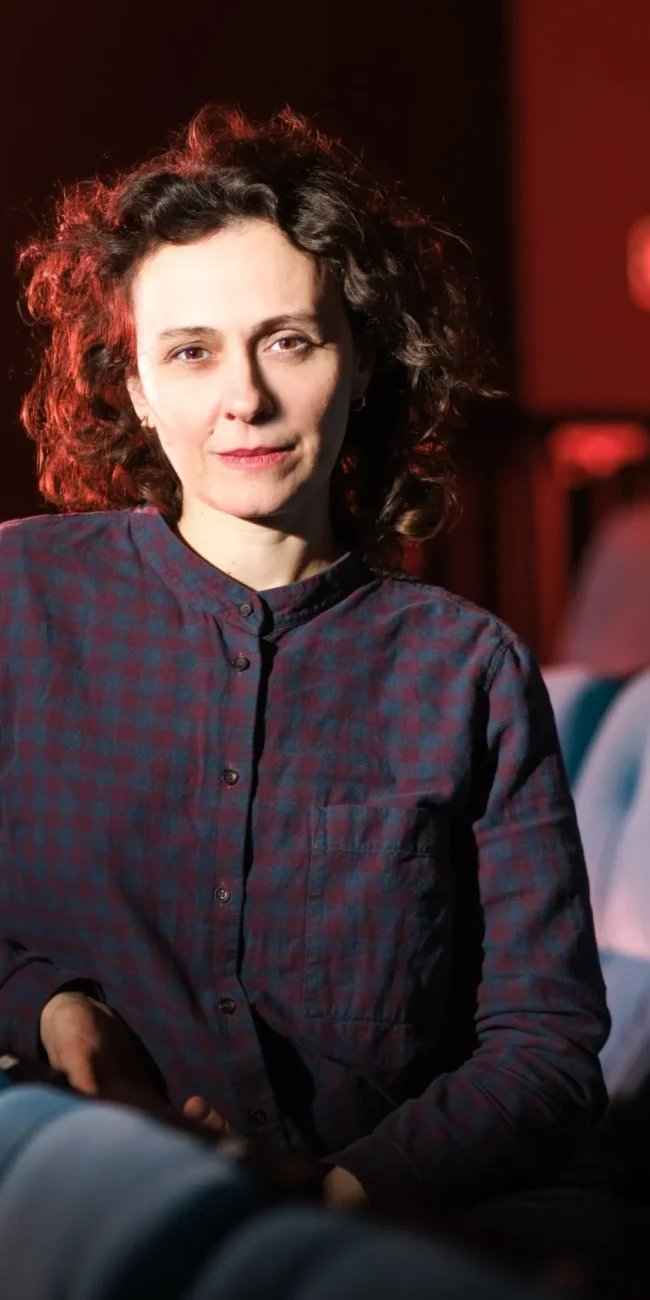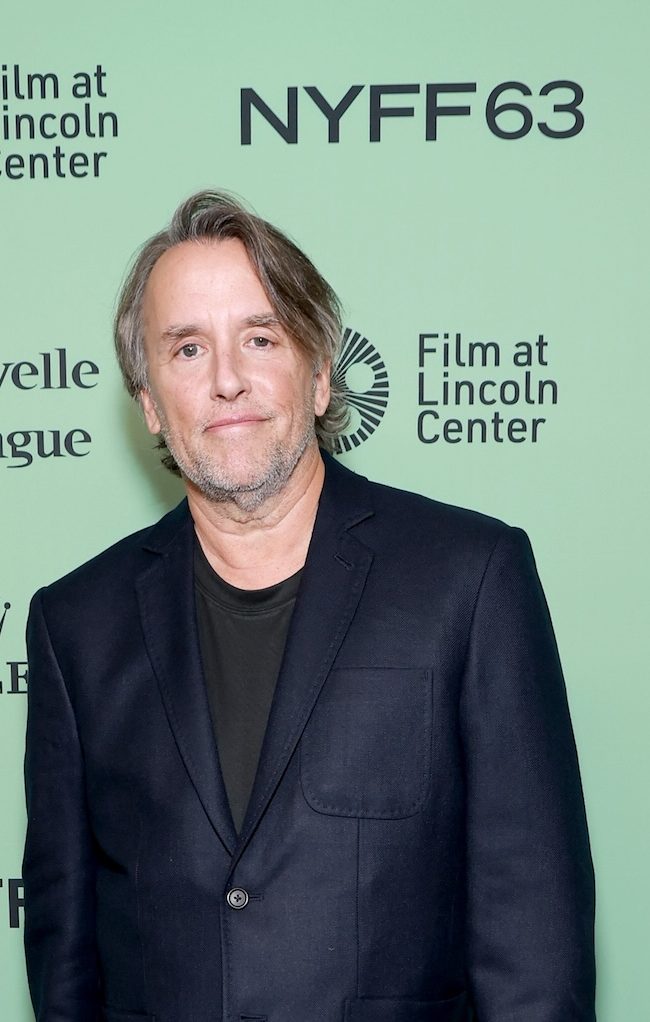A Conversation with Max Walker-Silverman (REBUILDING)
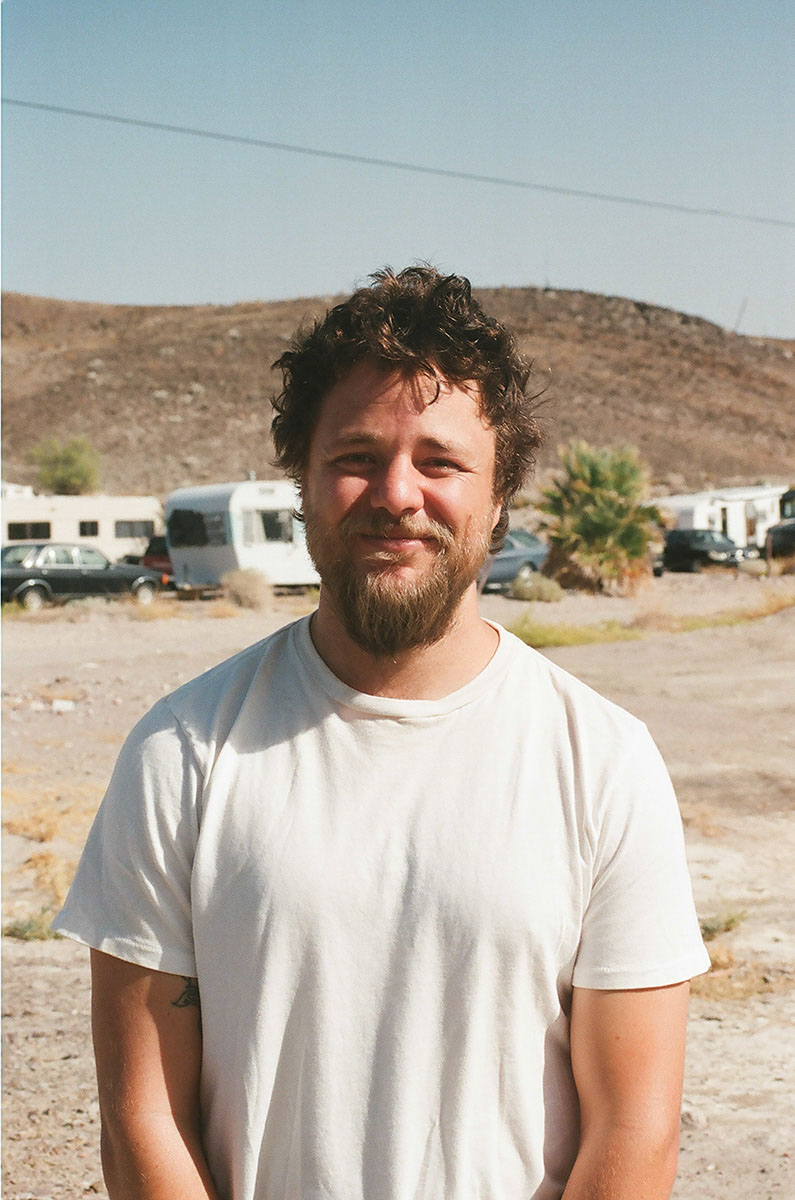
Max Walker-Silverman returns with Rebuilding, a tender follow-up to his 2022 debut A Love Song that explores displacement, community, and resilience in the aftermath of a wildfire. Starring Josh O’Connor as Dusty, a Colorado rancher struggling to reconcile his identity after losing his family’s multi-generational property. The film unfolds in a FEMA trailer park where survivors grapple with profound loss. With cinematographer Alfonso Herrera Salcedo and a cast mixing professional actors like Josh O’Connor and Meghann Fahy with local non-professionals, Walker-Silverman crafts an intimate meditation on what it means to rebuild, not just structures, but our very understanding of home and legacy. Shot in southern Colorado where Walker-Silverman’s own grandmother lost her house to fire, the film transforms personal grief into universal themes about belonging in an age of climate crisis. The following conversation was edited for length and clarity.
Hammer to Nail: Your DP Alfonso Herrera Salcedo shot your first film, A Love Song. What did you learn working together on that film that allowed you guys to go deeper and take more risks on Rebuilding? I know you guys spent six weeks storyboarding.
Max Walker-Silverman: I’ve worked with Alfonso for almost a decade now. We were classmates in film school, so he’s shot everything I’ve ever done, from homework to short films to features. The more experience we have together and the more we work in the place we plan on shooting, the more we try to step back a little bit. We made a few choices early on with Rebuilding to try to make the camera less conspicuous.
We shot digitally for the first time out of a desire to hold the film to some version of modernity. We wanted to keep it contemporary in a world that can feel a little bit behind the times. We also tried to make the camera a bit less stylized. We tried to let the actors inform camera choices rather than the other way around. Since it was a bigger movie, we had more toys than we’d had before, dollies and sliders, and we used all of them, but the guiding purpose is always: if someone’s really noticing a shot, we’ve probably done something wrong.
I appreciate that with him. It takes a really confident collaborator to be willing to step back, to be willing to do less. Maybe the more we’ve worked together, the more we’re willing to do less with the camera rather than more.
HTN: You cast many non-professional actors as Dusty’s neighbors in the trailer park. How did that casting process work, and what were you looking for that a trained actor couldn’t do?
MWS: It’s just fun working with real local people. I really believe in shooting on location, and I think it’s odd how many movies have to hide where they’re filming. Likewise, it’s odd how many movies have to hide who their characters are. I really believe in actors, it’s such a specific, great skill and craft. But there’s something that’s added to a film set when you have different sorts of people there.
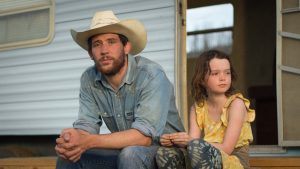
Josh O’Connor and Lily LaTorre in REBUILDING
Real people can bring a very specific look that is honest, but also just having people who are excited to be on a film set, excited to be working on a movie, it’s a reminder that we’re doing this cool fun game of make-believe. Beyond that, I can’t help it. Not all of those characters were intended to be non-professional actors, but it’s so hard at the end of the day to not cast the cowboy whose ranch you’re on to play the cowboy whose ranch you’re on. Or if I write a character who’s based on my friend Sam, I wind up having to cast Sam sometimes.
I hope there’s something real that they bring. I also think there’s something real that the professional actors bring. In those different ways of trying to get at something real, hopefully it mixes together into something that feels honest.
HTN: I love the first interaction between Dusty and Ruby (Fahy). I love how you slowly reveal their history. The acting from the two of them is so strong. What was important to you in these initial moments before Bess comes down?
MWS: That was a tough scene because there’s a lot of exposition without a lot of dialogue, which is a lot of pressure on the actors. They have to show that they’re not really in each other’s lives, that they’re not really close to each other, that they’re not entirely comfortable with each other, but also that they like each other, that they still care about each other, and that this is not going to be a story about a divorce that’s defined by its dramas. Those are really big concepts, and none of those have a line attached to them. That’s where working with experienced professional actors can be essential.
HTN: Shortly after, we have this great moment in the trailer between Dusty and Callie-Rose (Lily LaTorre). She shows him her various drinks and it’s heartwarming. Dusty says, “he was in advanced reading,” and Callie says that her mom says, “he didn’t apply himself,” Then they’re off to the library to get Wi-Fi, and Callie-Rose asks, “What about the neighbors? Why don’t we talk to them?” Dusty responds, “We shouldn’t be bothering people…they’re not real neighbors.” That moment really hit me hard on a rewatch. Just talk about crafting it.
MWS: The core of Dusty’s journey is that of a man who kind of thinks he’s apart from these other people, if not slightly above them, and then discovers that it’s not so much that they need him, it’s that he needs them. You’ve got to accept help if you’re going to be able to give it.
I guess it comes from growing up in a rural place. You’re raised with so much community and closeness, and all sorts of people. But it’s also a world of fences and private property and kind of a standoffish place as well. With apologies to cattle ranching, fences never charmed me all that much. I’ve spent a lot of my life trying to get to the other side of them.
HTN: When Dusty and Callie-Rose revisit the home, it’s one of the most powerful sequences in the film. Towards the end when the experience has taken a bit of a toll on Callie Rose, she simply says, “I want to go home.” This is obviously crushing, given he currently cannot provide the kind of home she’s looking for. Talk about that moment.
MWS: There’s this bigger backstory to the characters, in my opinion, which is that Dusty hasn’t been in Callie-Rose’s life because he’s busy trying to take care of a farm by himself, which is a hard thing to do. The irony is that he’s doing that because the way he understands fatherhood is that it’s his job to get that farm to her, that the responsibility of the legacy he carries of that land is to pass it to the next generation as it was passed on to him.
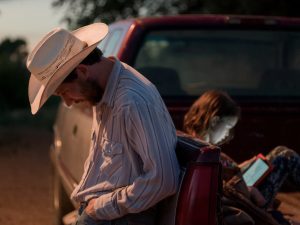
Josh O’Connor and Lily LaTorre in REBUILDING
Of course, that’s come at a terrible cost, which is not knowing the very daughter who he believes he’s protecting by spending all of his time caring for the land. At an even deeper level, there’s a good chance that place was going to go under whether there was a fire or not.
That moment when Callie-Rose says she wants to go home is intense because not only is she responding to the otherworldly freakiness of a devastated landscape, but she hasn’t been there because he hasn’t been there with her. I think he realizes that she’s not connected to the place in the same way that he is, inevitably. I hope it leads to him reimagining what legacy really means and what the responsibilities of fatherhood really mean.
HTN: At around the 37-minute mark, we have this wonderful moment where over dinner everyone’s talking about the things they lost, The picture book, the photos, etc. Then Callie-Rose is urging Dusty to speak up and the crew ensues telling him to open up a bit. Dusty gives this very eloquent soliloquy about how he keeps remembering things that are lost and he’s worried he’s going to forget the things that he lost. Can you talk about that very real anxiety and crafting that moment?
MWS: When people who’ve lost everything talk about what they miss the most, it’s always the small things. It’s photos, it’s journals, it’s small items of no monetary value but that contain huge emotional meaning, that contain memories. So much of our memory is held in things, and those are things that cannot be insured, much less replaced.
Cinema, and art generally, at its best, can do this amazing thing, which is to make big things very small and small things very big. That’s what loss does as wellit really amplifies the meaning of the quotidian, the day-to-day and the simple. I hope with the movie there’s an opportunity to feel how very big a small thing can be, how immense a photo can be or a recipe, which is what my mom missed from her grandma’s house.
HTN: I love the scene where Ruby, Dusty and Callie-Rose are discussing their family history. Amy Madigan’s character Bess comes over with a picture of Dusty’s grandparents who left Ireland and started over. It hits home for the audience that the forever home that he wants to rebuild only exists because they had to reinvent themselves. This leads into the heartbreaking discussion about Bess’s brother Theo, who she wants to be remembered. What was important to you at this moment?
MWS: Just like any legacy, that one also had its start. Any legacy, any tradition of family pride, anything that’s passed down began somewhere. I think we’re as humans sometimes more nomadic than we remember.
Especially in the United States, living as we are perhaps at the beginning of the end of an empire, it’s both alienating to remember that all nations fall, but there’s a certain hope in that too. Things collapse and then keep going. People collapse and then keep going. Families collapse and then keep going. It’s kind of like ecology too, forests burn and then re-sprout in a different way.
There’s limits to the comfort of all these things because we’re talking about timelines larger than our own lives, and there’s kind of an alienation to the smallness of that. But to me, there’s also a fucking relief. Thank God this isn’t everything and we aren’t everything and the choices we’ve made and the mistakes we’ve made are not the lasting thing in the universe.
For Dusty, for this family, for this piece of land in Colorado, I hope that remembering that four generations ago these were people who came from the highlands in Scotland and traded sheep for cattle is a reminder that there’s a chance for them to change as well. It may not be easy or pleasant, but many generations down the line, someone else may look back at a fresh choice someone made as the beginnings of something that they are now carrying on.
HTN: One last sequence I’d like to ask you about, after someone has passed away, there’s this really searing moment between Dusty and Callie-Rose as he tries to explain what happens after we die. His answers aren’t the most comforting to her, and she gives such an incredible performance as she asks Dusty to finally read the story to her. What was your thinking going into this moment?
MWS: The movie is in many ways about the loss of a place and how we don’t necessarily know how to think about that and how to deal with it. There are no ceremonies to mourn a place or memorialize it, really. There are for people, actually. Obviously there are limits to the way a funeral or a memorial can make anyone feel better after losing someone they love, but in every culture there are traditions. There are things you say, places you go, words you utter when you hug someone, etc.
Those may not necessarily make you feel better, but at least there’s a pathway of what to do. We don’t really have that for places. It’s hard to understand how to mourn what was, or for ways of life for that matter. I was curious in looking at the way these traditions exist for people if there’s some lesson for other types of loss, which is inevitable as well, just as is losing people.
– Jack Schenker (@YUNGOCUPOTIS)








